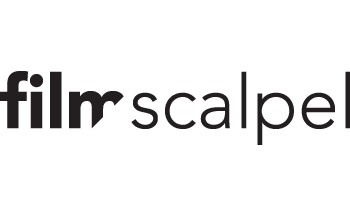Teaching

The video essay has fast become a staple not only of criticism and fandom, but also of academia. In that regard, it is also being taught more and more in universities and schools of art around the world, and in workshops that are geared towards budding audiovisual critics or curious scholars. On this page texts and testimonials are gathered that shed light on how to teach videographic criticism.
Playing with MESHES OF THE AFTERNOON (CRISTINA ÁLVAREZ LÓPEZ)
Seasoned practitioner of the video essay Cristina Álvarez López writes about her experience in teaching the video essay at the Elías Querejeta Zine Eskola, a Basque institute. She has her students engage with Maya Deren and Alexander Hammid’s Meshes of the Afternoon.
Read her text online.
Taking stock (Michael Witt)
Michael Witt has been teaching the history, theory and practice of the video essay for two decades. He looks back on that period in this text which is lavishly illustrated with examples of his students’ efforts.
Read the complete article on the website of Necsus.
The Video Essay Assignment
Here’s a mother lode of texts and videos about (the practicalities) of teaching the video essay form. It has contributions by half a dozen film scholars, including talented practitioners such as Jennifer Proctor.
Dig into this riches of resources on this website.
Scholarship in Sound & Image: A Pedagogical Essay (Christian Keathley and Jason Mittell)
The videographic criticism workshop ‘Scholarship in Sound & Image’ that has been held numerous times now at Middlebury College is where many academic practitioners of the form took their first steps. This essay is another result of said workshops, and was written by its founders.
Read the text on this website.
Teaching avant-garde practice as videographic research (Jennifer Proctor)
Jennifer Proctor is a renowned practitioner of the video essay and an avant-garde filmmaker who also teaches. In the Autumn 2019 issue of Screen, Proctor outlines “a few approaches to production practice that can yield fruitful educational results for students (and scholars)”.
Read the complete article via this link.
Teaching Critical Memes
Promoting and teachig the use of internet memes as a mode of critical reflection may sound counterintuitive. But this article, detailing the way in which Leonardo Flores had his students create memes to critically engage with Shakespeare and T. S. Eliot, will convince you otherwise.
Read the complete article on Hyperhizz via this link.
TEACHING VIDEOGRAPHIC FILM STUDIES (Christian Keathley)
Christian Keathley has written repeatedly about his experience in teaching videographic film studies. This particular text, written for a 2014 issue of the journal The Cine-Files, updates and elaborates on some of his earlier writing.
Read the complete article on the Cine-Files via this link.
Teaching the Video Essay (James Wicks)
James Wicks is a professor who writes about transnational film, Chinese studies & pop culture. In the fall of 2017 he required students in his Postcolonial Literature and Film class in San Diego, California to submit video essays instead of traditional essays.
He has generously written about this experience on his blog.
“USE THE FORCE, LUKE!”: TEACHING VIDEOGRAPHIC CRITICISM TO STUDENTS AND COLLEAGUES (DREW MORTON)
As co-editor of the peer-reviewed journal of videographic criticism [in]Transition, and of course being a film scholar and videographic critic himself, Drew Morton is perfectly positioned to judge the potential of the video essay. In fact, he has also taught an upper division course on videographic criticism, and he wrote about that experience for the University of Texas’ online journal for film and television studies Flow.
TEACHING TRANSFORMATIVITY / TRANSFORMATIVE TEACHING - FAIR USE AND THE VIDEO ESSAY (SUZANNE SCOTT)
This article by Suzanne Scott is framed as a series of thoughts and tips on the teaching of videographic criticism. But it focusses primarily on issues of copyright, laying out a teaching strategy in which the concept of Fair Use is stressed in any assignment the students have to complete.
Read this text online or download a PDF version.

